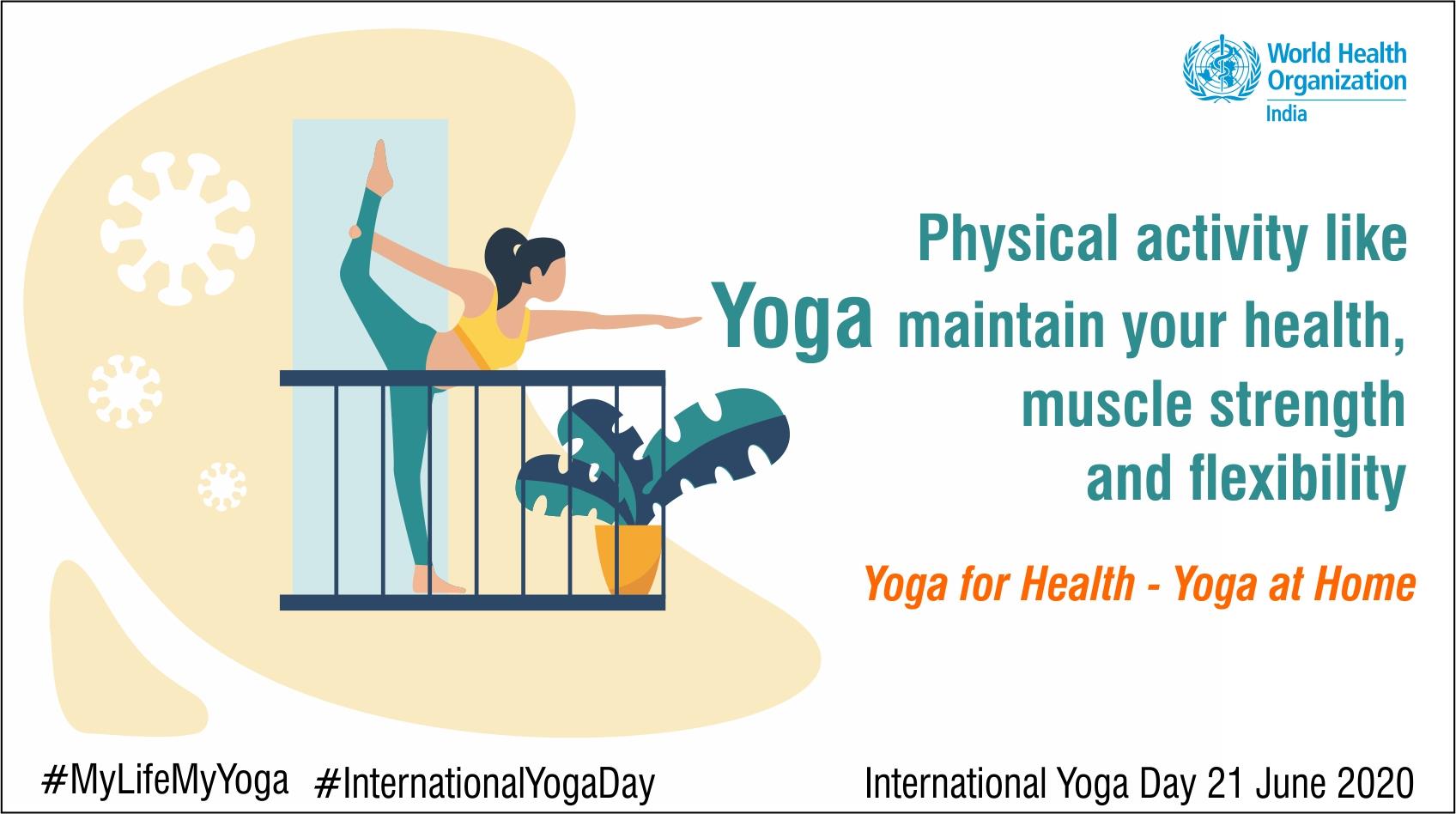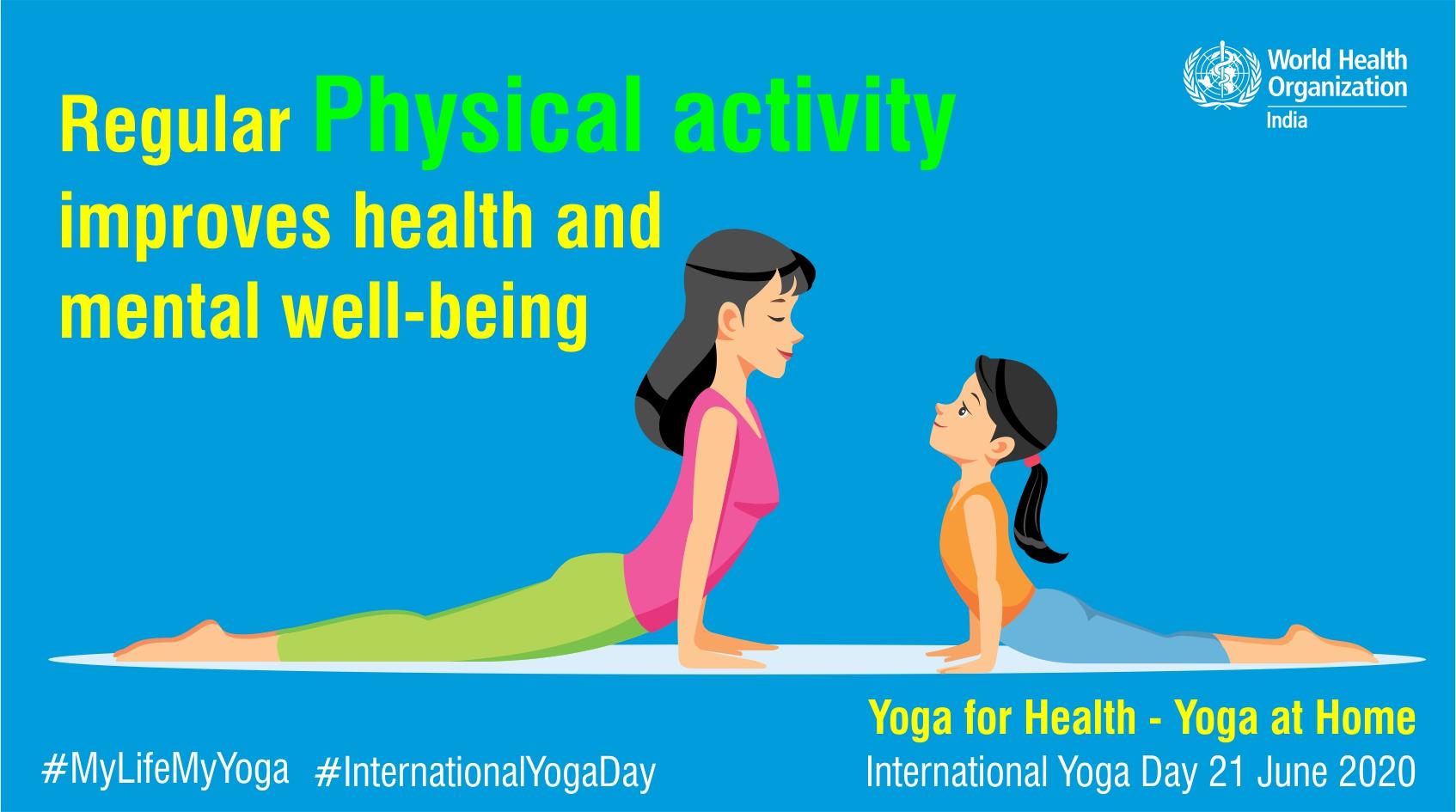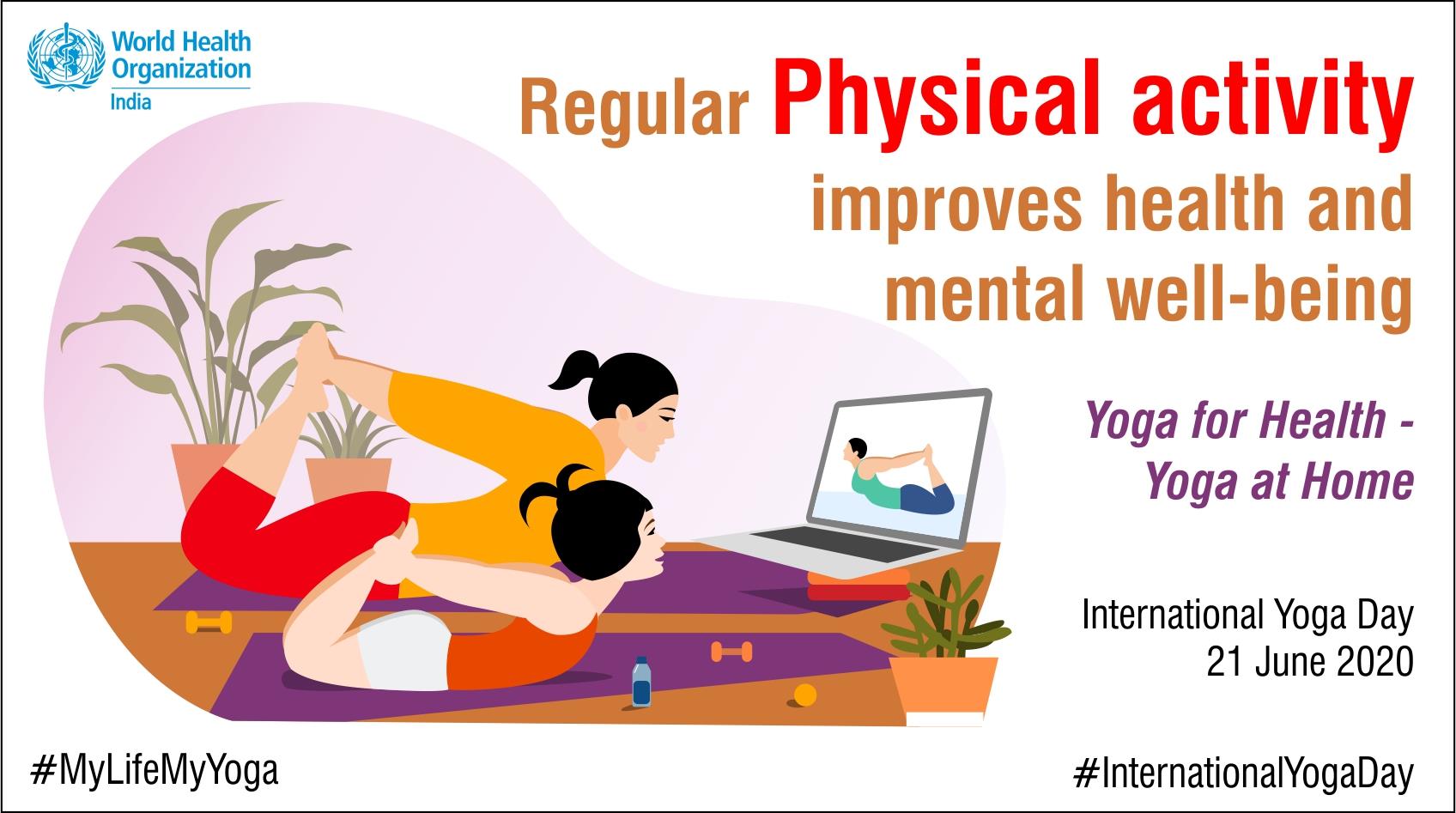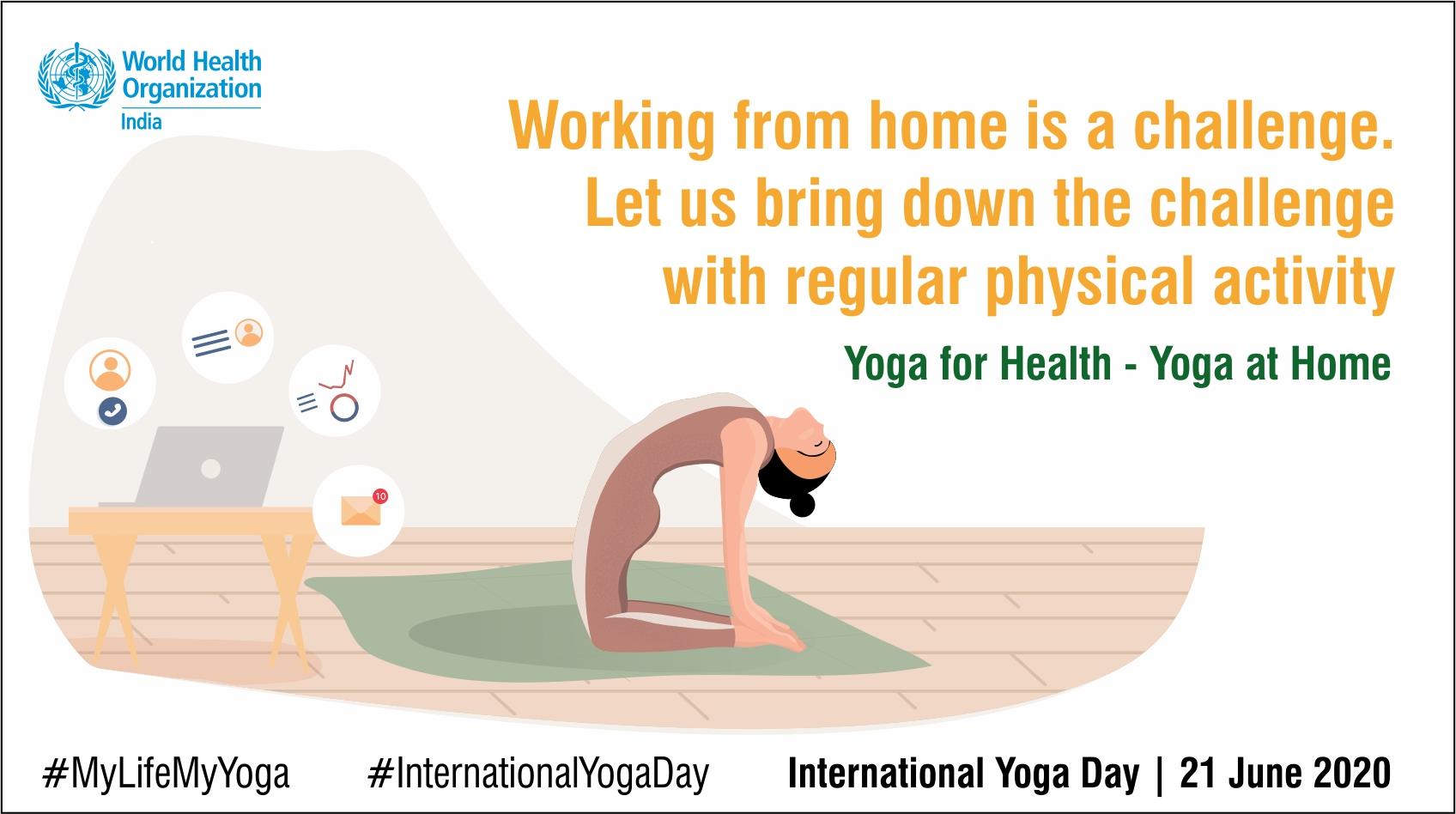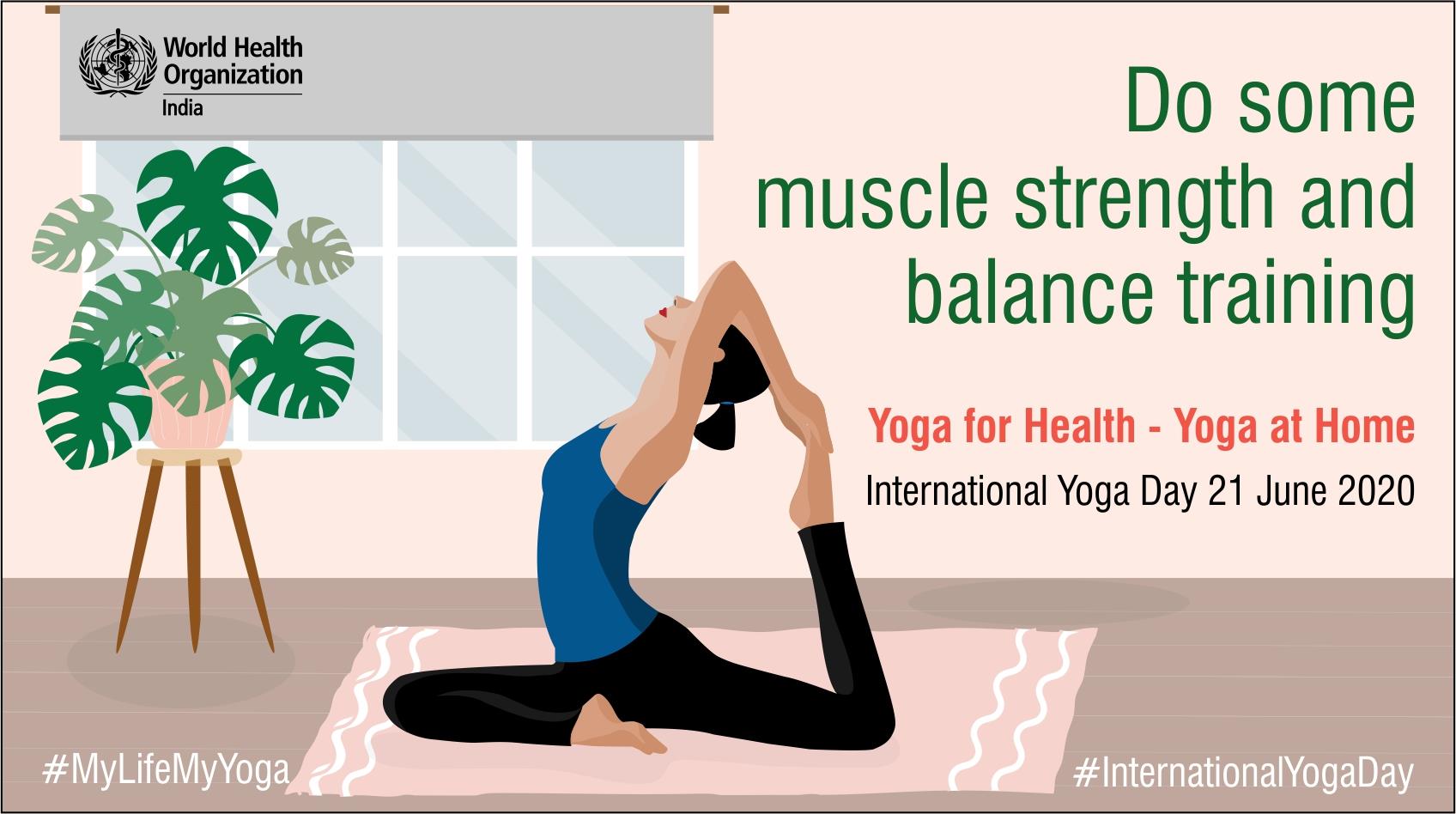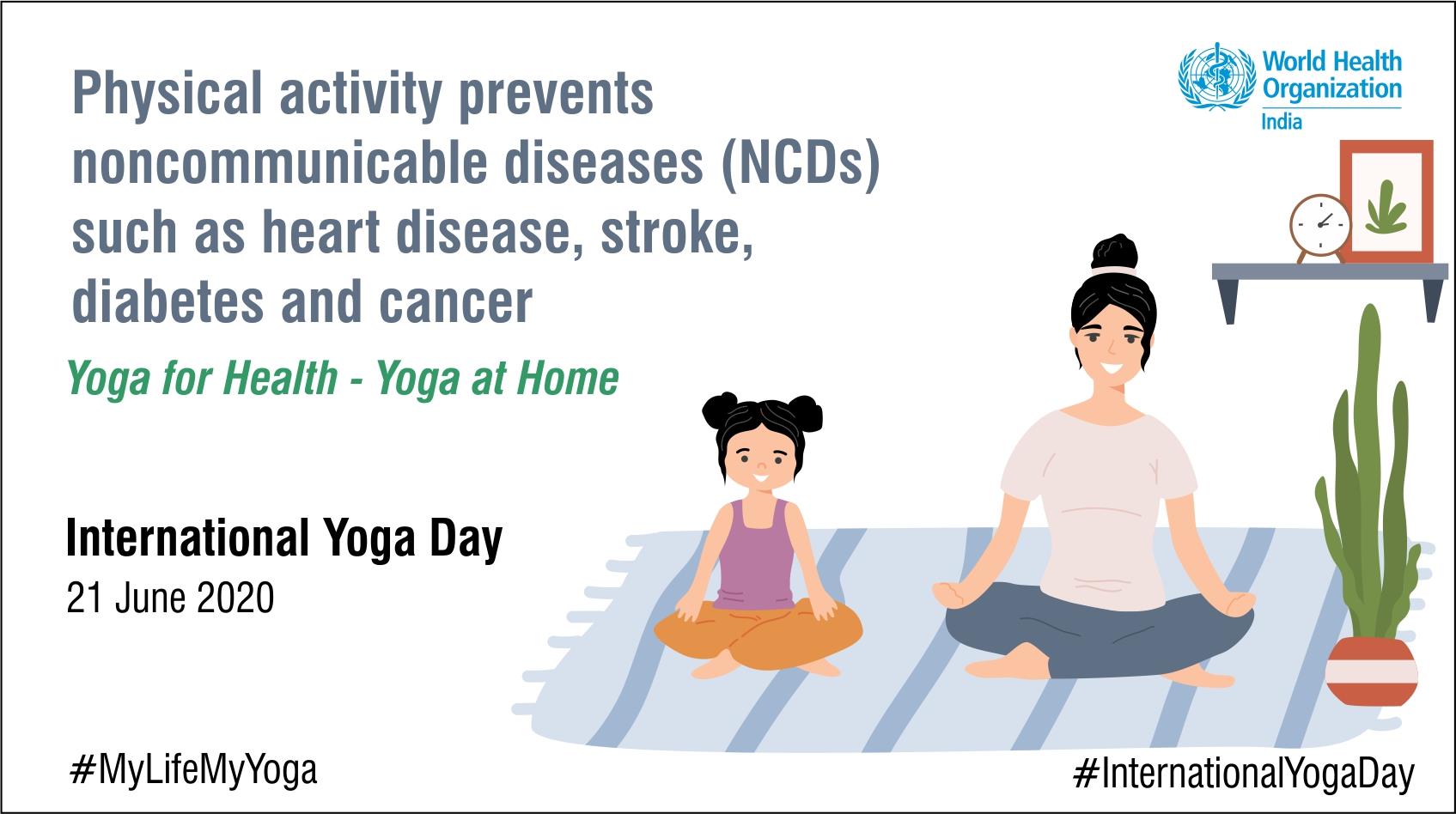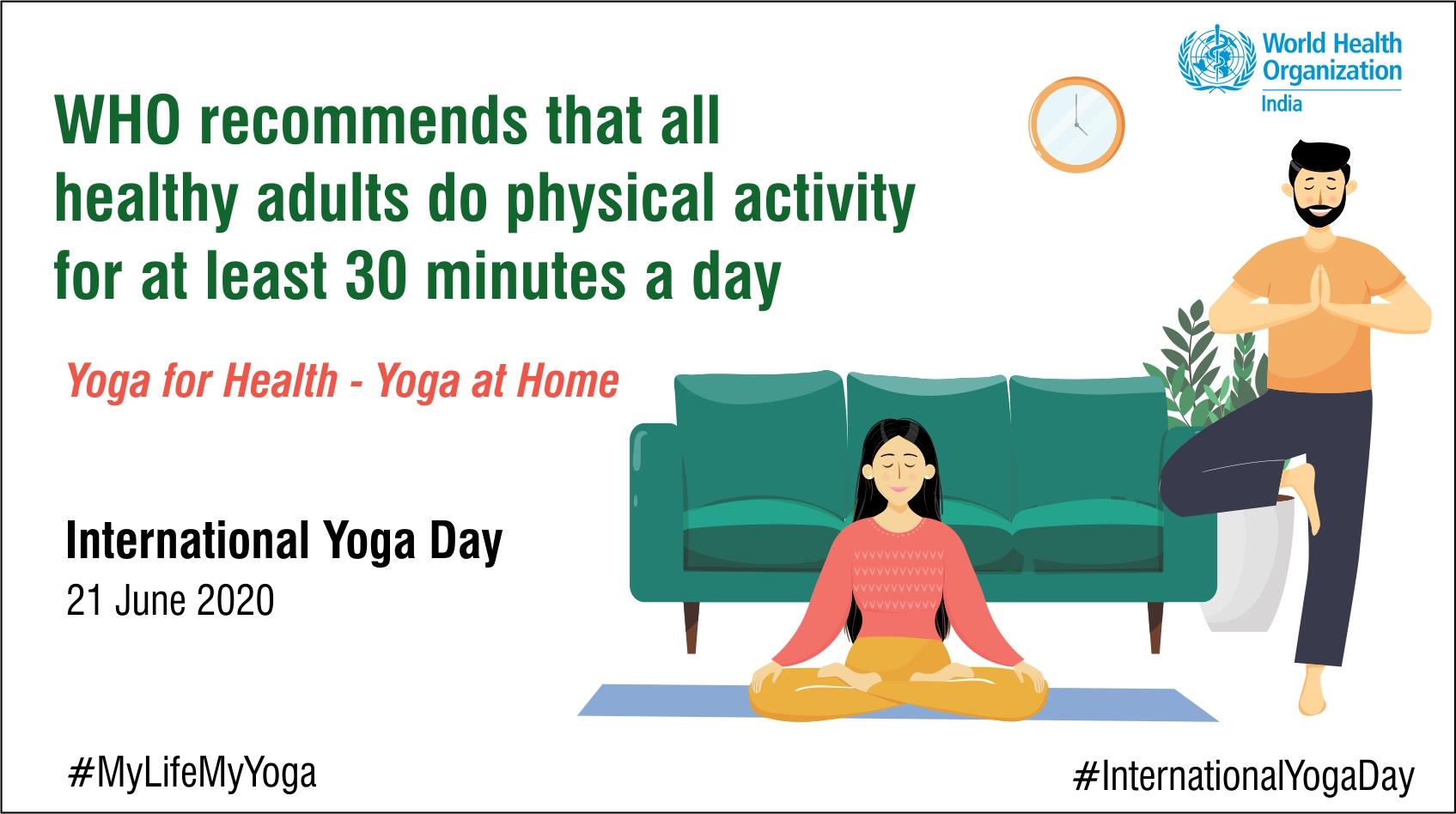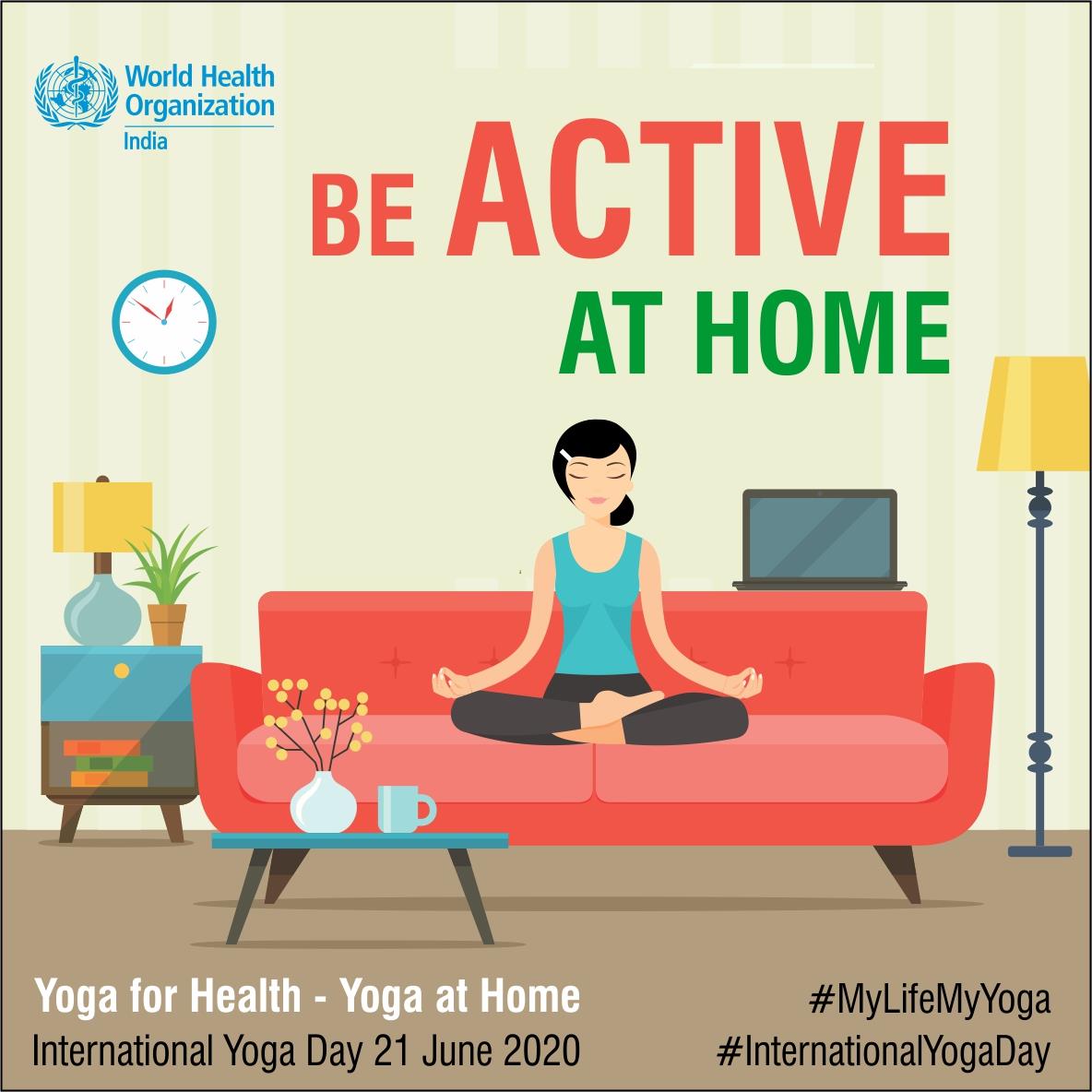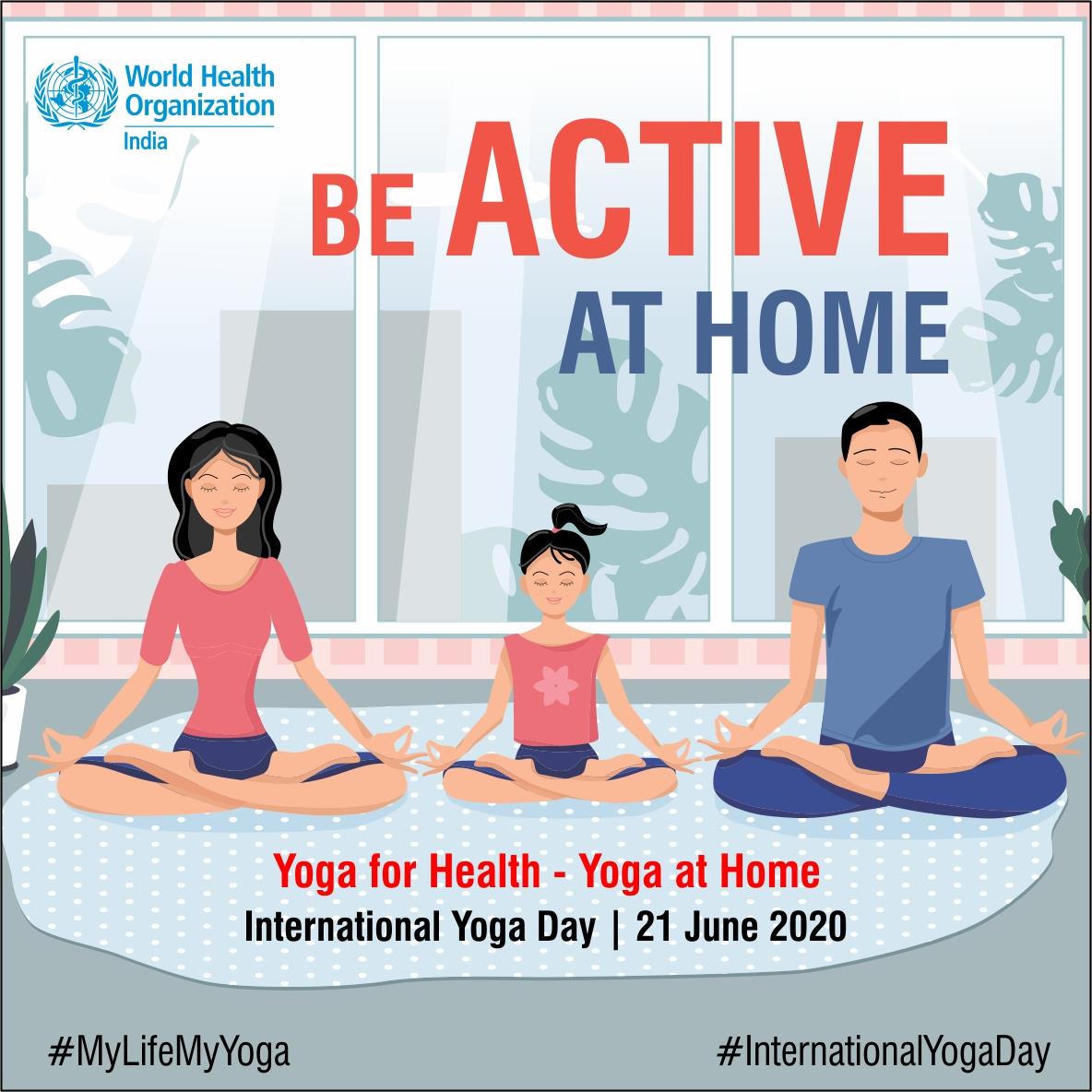
International Yoga Day 2020
World Health Organization recommends that adults and older age group people should do at least 150 minutes to 300 minutes of moderate-intensity aerobic physical activity throughout the week or do at least 75 to 150 minutes of vigorous intensity aerobic physical activity throughout the week, or an equivalent combination of moderate- and vigorous-intensity activity for substantial health benefits.
The challenge of maintaining the physical activity recommendations is multi fold during the COVID-19 pandemic when the social distancing norms need to be followed and advice is to stay at home. There are various modalities of physical activity which can be performed and recommended even in this unprecedented and challenging times such as walking even in small spaces, dancing, yoga, home based exercises, playing with children, and performing domestic chores such as cleaning and gardening are other means to stay active at home.
The Yoga is India’s ancient tradition and is more than a physical activity. Yoga is essentially a spiritual discipline based on subtle science, which focuses on bringing harmony between mind and body. The word ‘Yoga’ is derived from the Sanskrit root ‘Yuj’, meaning ‘to join’ or ‘to yoke’ or ‘to unite’. The proven benefits of yoga include increased flexibility and fitness, mindfulness and relaxation.
United Nations celebrate International Yoga Day every year on 21st June since 2015. The resolution for International Day of Yoga was proposed by India and endorsed by a record 175 member states through UN resolution 69/131. This year the theme of International Yoga Day (IDY) is ‘Yoga for Health - Yoga at Home’. The Global Action Plan on Physical Activity 2018–2030 which is endorsed by the Member States mentions yoga as a means to improve health.
Physical inactivity is one of the leading risk factors for NCDs, namely heart disease, stroke, breast and other cancers and diabetes. Conversely, India, recent survey results show that around 25% of adults and adolescents are physically inactive with some reports claiming less than half of the children and youth in India meet PA guidelines.
Regular physical activity is associated with improved well-being as well as enhanced social and mental health. The positive health impacts of different types and durations of physical activity on health outcomes is well evident. Physical activity is protective factor for the prevention and treatment of the leading noncommunicable diseases (NCDs), namely heart disease, stroke, diabetes and breast and colon cancer. It also contributes to the prevention of other important NCD risk factors such as hypertension, overweight and obesity, and is associated with improved mental health, cognitive health outcomes & delay in the onset of dementia.
Let us come together to celebrate the International Yoga Day and take pledge to become more active physically, make healthier choices and follow lifestyle patterns that foster good health.
Creatives
